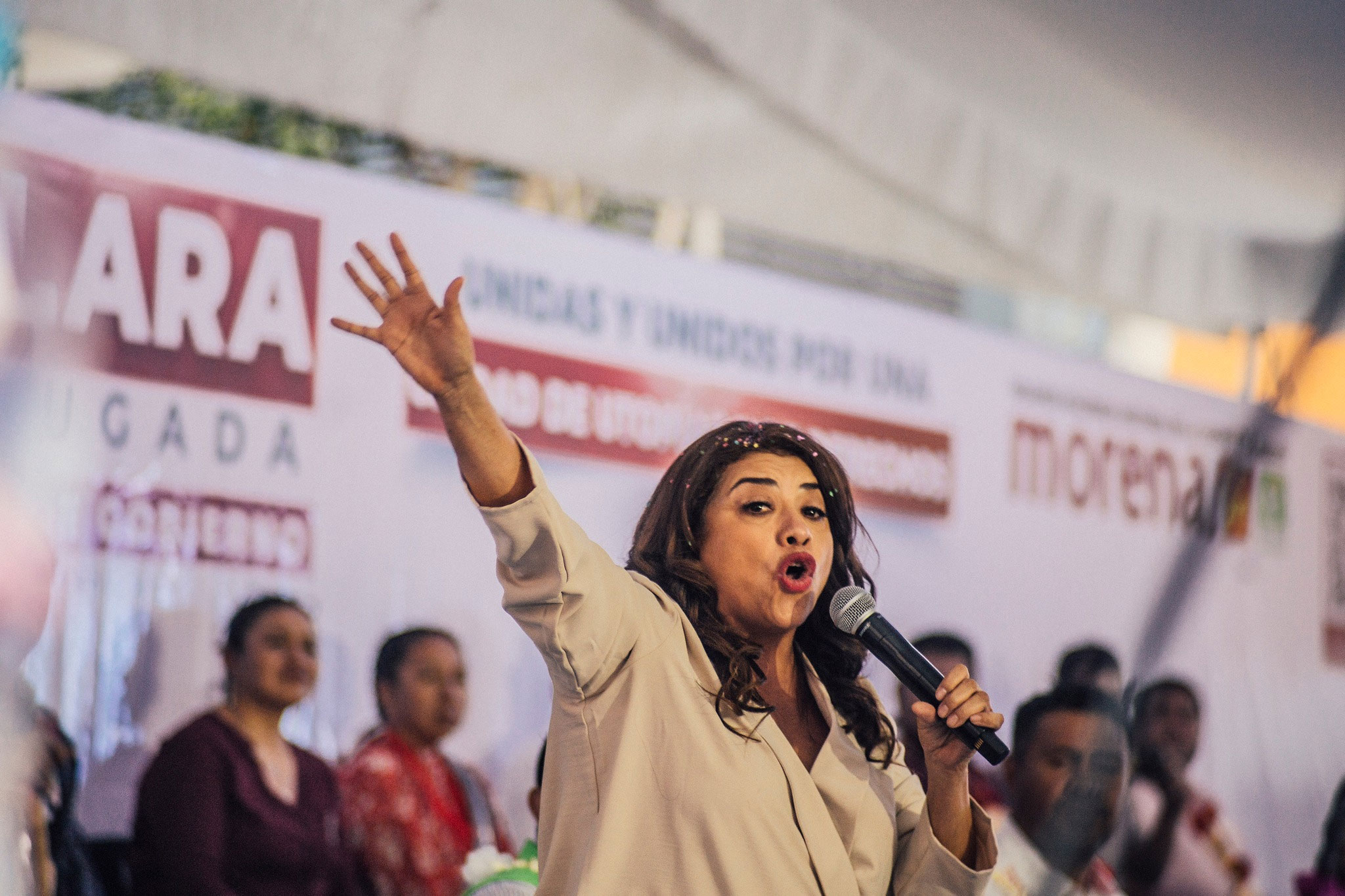CDMX Head Brugada Announces Anti-Dispossession Strategy
This article by Israel Aguilar Esquivel originally appeared in the July 29, 2025 edition of Infobae.
The head of government of Mexico City (CDMX), Clara Brugada Molina, announced her strategy to combat the crime of dispossession . The plan includes reforms to the Penal Code to include this behavior. Similarly, the capital’s prosecutor, Bertha Alcalde Luján, detailed which crimes will be classified as comparable.
At a press conference, Brugada Molina announced the creation of a crime prevention agency, to be comprised of the Public Property Registry, the National Institute of Violence (INVI), the Human Rights Commission, the Legal Counsel, and the Mexico City Attorney General’s Office. It will report to the Ministry of the Interior.
According to the statement by the Mexico City prosecutor, a reform of Article 237 of the Penal Code will be sought to make the punishment more severe, increasing the sentence from six to 11 years in prison, and up to 22 years, without bail, if aggravating factors are found.
Another reform to the Criminal Code contemplated for implementation is the inclusion of crimes equivalent to dispossession. These will be included in Article 238 Bis and, according to the proposal, will be:
I. Unlawful possession of the property if the occupant does not return it despite being required by the person with the right, or does not hand it over to the authority so that it may dispose of it in accordance with the law.
II. Anyone who, taking advantage of a public office, his or her status as a notary , or any trade union or social group, participates in the dispossession and obtains any other benefit derived from it.
In this regard, the behaviors listed in the proposal for Article 238 Bis could also be punished with up to 11 years of imprisonment without bail, as well as double that amount if any of the aggravating circumstances indicated are present:
- Dispossession of vulnerable victims such as minors, pregnant women, and indigenous peoples.
- Dispossession by simulation of legal acts.
- Dispossession of public property, that is, of Mexico City government properties and protected natural areas.
- Dispossession for profit.
- When a public servant participates.
- When carried out by groups of three or more people.
- When acts of authority are simulated.
- When false documentation is used.
-
People’s Mañanera January 19
President Sheinbaum’s daily press conference, with the ever-frequent reading of the polls, raising revenue without raising taxes, Salinas Pliego tax debt comes due, US Hercules plane landing in Mexico, and Mexican dying in ICE custody.
-
Our Water, In Whose Hands?
A promising vision from President Sheinbaum for public water management rapidly disappeared. Yet again the Mexican state openly assumes the role it has always played under neoliberalism: facilitating access to natural resources for special interests.
-
38 Billion Pesos Withdrawn from AFORE Accounts Due to Unemployment
The large number of Mexicans withdrawing from their pensions to survive unemployment indicates an urgent necessity to establish national unemployment insurance.




